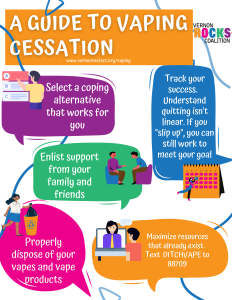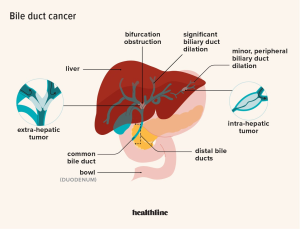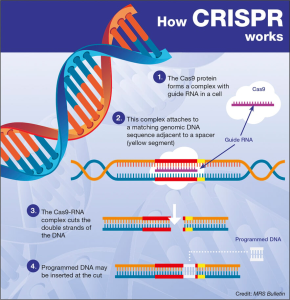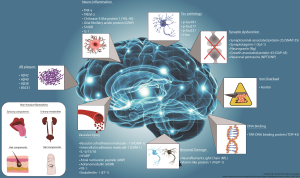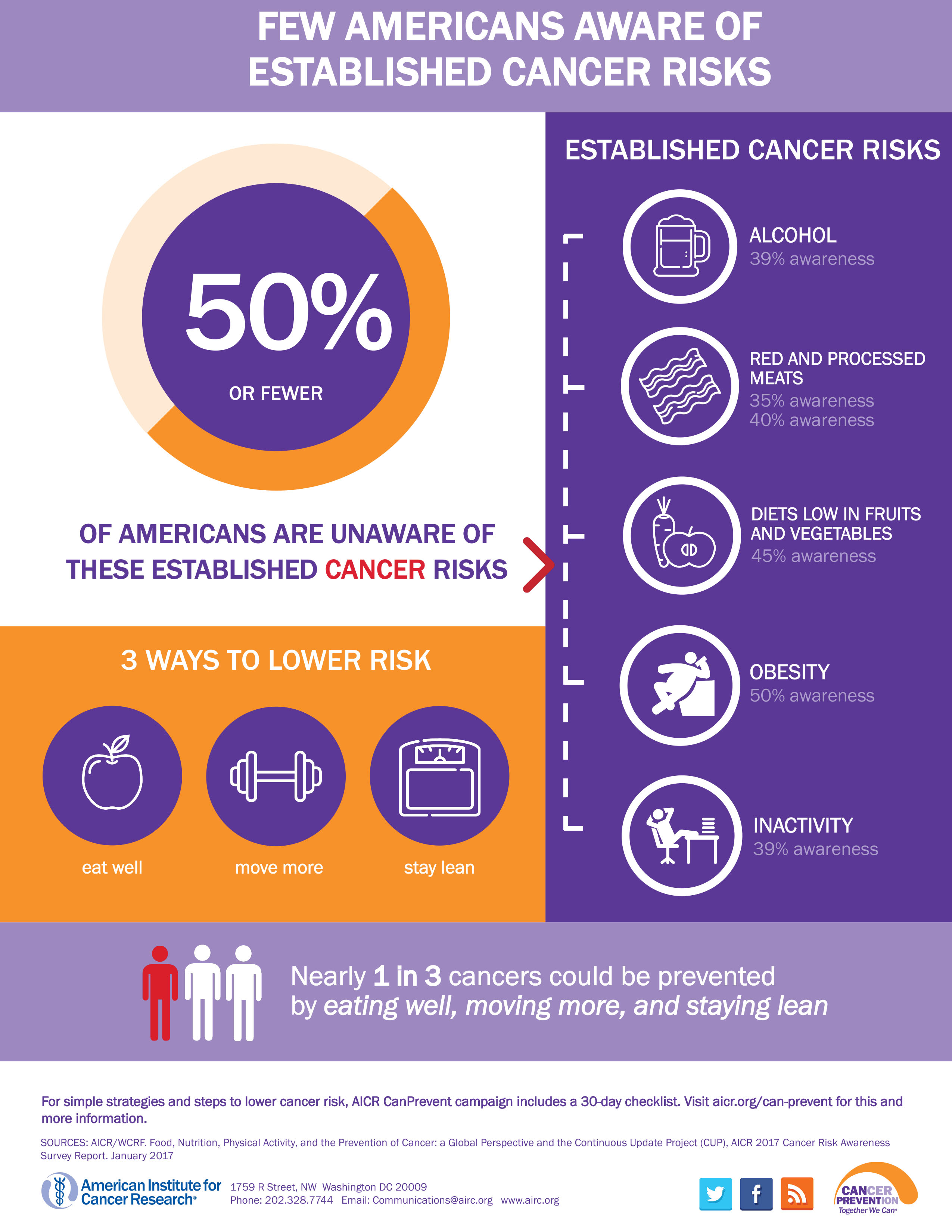
Cancer risk claims are a prevalent topic in today’s media landscape, leaving many to wonder which statements they can trust. As misinformation spreads through social platforms and casual conversations, the importance of accurate information becomes evident. To combat this issue, the Harvard T.H. Chan School of Public Health has developed tools like the Cancer FactFinder quiz, designed to clarify common misconceptions about cancer prevention. This research-based resource aims to empower individuals to make informed decisions about their health by distinguishing science-backed facts from myths. By understanding the realities around cancer risk, we can all work towards healthier lifestyle choices that could potentially reduce our risk of developing this disease.
When discussing the potential hazards of cancer, many terms and phrases are used interchangeably, such as cancer danger claims or assertions about cancer susceptibility. The abundance of information, often conflicting, creates confusion among the public regarding what truly elevates cancer risk. To address this, tools like the Cancer FactFinder quiz provide users with essential insights into commonly debated topics related to cancer and its prevention. This innovative approach emphasizes the importance of credible research, like that conducted by Harvard, to debunk cancer myths and promote a healthier way of living. Ultimately, understanding these concepts not only fosters an informed community but also encourages proactive measures to lessen cancer risk.
Understanding Cancer Risk Claims
Cancer risk claims have become ubiquitous in our daily lives, propagated through various media channels. The sheer volume of information, however, can be overwhelming, often blurring the lines between evidence-based facts and misconceptions. The Harvard T.H. Chan School of Public Health emphasizes the importance of scrutinizing these claims, particularly given the potential impact they can have on health decisions and lifestyle choices. With misinformation widely shared, understanding the credibility of sources is essential in making informed decisions about cancer risks.
As claims about potential cancer risks arise, it is crucial for individuals to rely on fact-checked research rather than anecdotal evidence or sensational headlines. Tools like the Cancer FactFinder offer a valuable resource for unraveling these claims. This online tool allows users to explore various assertions surrounding cancer risks, serving as a guide to separate myth from reality, thus empowering people to prioritize cancer prevention strategies and embrace healthy lifestyle choices.
The Role of Healthy Lifestyle Choices in Cancer Prevention
Embracing healthy lifestyle choices can dramatically influence cancer prevention efforts. Research consistently indicates that factors such as regular physical activity, a balanced diet, avoiding tobacco, and limiting alcohol consumption can significantly reduce the risk of various cancers. By focusing on such healthy habits, individuals can take proactive steps toward enhancing their overall wellbeing while mitigating cancer risks.
Incorporating nutrient-rich foods, such as fruits and vegetables, along with engaging in regular exercise, are foundational components of a cancer-preventive lifestyle. Studies, including those from Harvard research, underscore the connection between such choices and lower cancer incidence. Furthermore, addressing factors like stress and sleep patterns can also contribute to a holistic approach in reducing cancer risks.
Debunking Cancer Myths: What You Need to Know
Many myths surrounding cancer prevention and risk factors persist, often leading to confusion and misunderstanding. For instance, misconceptions regarding coffee consumption suggest that it increases cancer risk, whereas extensive research indicates it may actually lower the risk for certain types. The ability to differentiate between these myths and factual information is paramount in making informed health decisions.
The Cancer FactFinder serves as an essential resource to debunk these myths and provide clarity. For those questioning common assertions, such as the safety of certain cooking methods or lifestyle habits, this tool enables users to explore scientific insights and expert opinions. By prioritizing factual information over myths, individuals are better equipped to engage in meaningful discussions about cancer prevention and risk assessment.
Insights from Harvard Cancer Research
Harvard’s extensive cancer research provides valuable insights into understanding cancer risks and prevention strategies. For instance, studies from the Harvard T.H. Chan School of Public Health have identified numerous factors associated with increased cancer risk, including lifestyle choices and environmental exposures. This rich body of research underscores the necessity for evidence-based approaches in addressing cancer-related health concerns.
Additionally, Harvard researchers advocate for public awareness campaigns to disseminate accurate information and promote actionable steps for cancer risk reduction. By drawing on the latest scientific findings, the aim is to guide individuals in adopting healthier lifestyles that can potentially prevent cancer and improve quality of life.
Using the Cancer FactFinder Quiz to Assess Risks
The Cancer FactFinder quiz serves as an interactive tool for individuals seeking to assess their knowledge regarding cancer risks and preventative measures. By answering questions that challenge common beliefs about cancer, users can gauge their understanding and identify any misconceptions that may exist. This self-assessment is not only educational but also instrumental in fostering more informed discussions about health.
By engaging with the quiz, individuals can learn about various claims, such as the risks associated with certain dietary habits or lifestyle choices, as highlighted in Harvard’s research. This learning tool ultimately empowers users to make more informed health decisions, as knowledge is one of the most significant assets in the fight against cancer.
Alcohol Consumption and Cancer Risks
Extensive research, including findings from Harvard experts, highlights alcohol consumption as a significant factor influencing cancer risk. The U.S. Surgeon General has characterized alcohol as a leading preventable cause of cancer, especially concerning breast and liver cancers. Many individuals may be unaware of the specific risks associated with alcohol intake, underlining the importance of informed consumption.
The correlation between alcohol and various cancers reinforces the need for individuals to evaluate their drinking habits critically. By moderating or eliminating alcohol consumption, individuals can significantly lower their risk of developing certain cancers, thus opting for healthier choices that contribute positively to their overall health.
The Influence of Diet on Cancer Risk
Diet plays a crucial role in cancer risk, with substantial evidence suggesting that certain foods can either increase or decrease the likelihood of developing the disease. For instance, the consumption of processed and charred meats has been frequently flagged by health organizations as potential carcinogens. Conversely, diets rich in fruits, vegetables, and whole grains are associated with reduced cancer risk.
Research from renowned institutions like Harvard emphasizes the importance of dietary choices in cancer prevention. Public awareness around the significance of a balanced diet can encourage individuals to make informed decisions that align with cancer prevention strategies, ultimately leading to healthier lifestyles.
The Importance of Physical Activity in Cancer Prevention
Regular physical activity is yet another critical component linked to cancer risk reduction. Studies consistently demonstrate that a sedentary lifestyle can contribute to higher incidences of various cancers, including breast and colorectal cancers. Making a conscious effort to integrate physical activity into daily routines can have lasting health benefits.
By promoting an active lifestyle, individuals stand a better chance of lowering their cancer risk while also enhancing their overall well-being. Insights from extensive research advocate for a minimum of 150 minutes of moderate-intensity aerobic activity each week, alongside strength-training exercises, to maximize health benefits associated with cancer prevention.
Evaluating Environmental Exposures and Cancer Links
Environmental exposures can significantly impact cancer risk, as certain substances and conditions are linked to various forms of cancer. For instance, the International Agency for Research on Cancer has classified certain pollutants and chemicals as carcinogenic, raising awareness about potential hazards in our surroundings. Understanding these connections is vital for effective cancer prevention strategies.
By being informed about environmental risk factors and taking appropriate precautions, individuals can better safeguard themselves against possible cancer-causing exposures. Public health initiatives and research endeavors aim to educate communities on minimizing environmental risks, thereby promoting healthier living conditions and reducing cancer probabilities.
Dispelling Myths on Sunscreen and Skin Cancer
The importance of using sunscreen in preventing skin cancer cannot be overstated, yet myths continue to circulate regarding its necessity. Many people mistakenly believe that sunscreen is only needed on sunny days or that individuals with darker skin tones do not require it. Research findings consistently demonstrate the need for sunscreen to protect against harmful UV radiation, thereby reducing the risk of skin cancer.
Recognizing and debunking these myths is essential for fostering a public understanding of sun safety. Through educational efforts, individuals can be encouraged to adopt sun protection measures as part of their healthy lifestyle choices, significantly contributing to cancer prevention.
Frequently Asked Questions
What are common cancer risk claims and how can I determine their validity?
Cancer risk claims can be found everywhere, from social media to news outlets. To determine their validity, utilize resources like the Cancer FactFinder by Harvard T.H. Chan School of Public Health, which helps debunk cancer myths and provides research-backed evidence on various cancer claims.
How does alcohol consumption relate to cancer risk claims?
Cancer risk claims suggest that alcohol consumption is a leading preventable cause of cancer. Research indicates that excessive alcohol intake is linked to various types of cancer, reinforcing the importance of moderation in lifestyle choices to mitigate cancer risk.
Can coffee consumption impact my cancer risk?
Recent research on cancer risk claims has suggested that coffee consumption may actually decrease cancer risk rather than increase it, although further studies are needed to fully understand the effects of coffee on cancer prevention.
What role does diet play in cancer risk according to research?
Cancer risk claims surrounding diet often emphasize the dangers of processed and charred meats, both flagged as potentially carcinogenic by the International Agency for Research on Cancer. Maintaining a healthy diet rich in fruits and vegetables is considered vital for cancer prevention.
How can I use the Cancer FactFinder quiz to understand cancer risk claims?
The Cancer FactFinder quiz by Harvard helps users evaluate the credibility of common cancer risk claims. By answering questions based on research findings, individuals can learn which lifestyle choices may contribute to or reduce their cancer risk.
What lifestyle changes can help prevent cancer based on debunking cancer myths?
Incorporating healthy lifestyle choices such as regular physical activity, maintaining a healthy weight, and managing stress can significantly lower cancer risk. Debunking myths about cancer helps guide individuals towards these beneficial practices.
Is there any truth to claims about turmeric’s cancer prevention properties?
While some claim that turmeric can help prevent cancer, researchers suggest that more studies are needed to fully understand its effects. However, a diet rich in anti-inflammatory spices, including turmeric, is a healthy choice that may contribute to cancer prevention.
What is the significance of sunscreen in regards to skin cancer risk claims?
Cancer risk claims emphasize that sunscreen should be used daily, regardless of skin color or weather conditions. Myths stating that dark-skinned individuals don’t need sunscreen or that a base tan protects against sun damage have been debunked.
Are there specific cancers that have higher risks for certain demographics?
Yes, certain cancer risk claims indicate that demographic factors, such as ethnicity and genetics, can increase vulnerability to specific cancers. For example, research shows that Black men are at a higher risk for prostate cancer.
How do sleep patterns affect cancer risk according to research?
Debunking cancer myths reveals that disruptions in sleep patterns may hinder the body’s ability to prevent cancer. Quality sleep is an essential component of a healthy lifestyle that may help in reducing cancer risks.
| Claim | True/False | Explanation | |
|---|---|---|---|
| U.S. Surgeon General identifies alcohol as a leading preventable cause of cancer. | True | Alcohol is recognized as a significant risk factor for various cancers. | |
| Coffee consumption increases cancer risk. | False | Research indicates coffee may actually decrease cancer risk. | |
| Charred meat, processed meat, and red meat are possible carcinogens. | True | These meats are flagged by the International Agency for Research on Cancer. | |
| Burning scented candles indoors can lead to cancer-causing exposures. | True | Certain candle ingredients may release harmful chemicals when burned. | |
| Pilots and flight attendants have higher cancer risks. | True | Exposure to higher radiation levels can increase cancer risk. | |
| Consuming turmeric can help prevent cancer. | More research needed | Evidence is limited, and further study is required. | |
| Using tampons raises cancer risk. | False | No evidence supports this claim. | |
| Low physical activity, obesity, and stress increase cancer risk. | True | These lifestyle factors are known to contribute to cancer. | |
| Disruptions in sleep patterns hinder cancer prevention. | True | Poor sleep can negatively impact the body’s defenses against cancer. | |
| People with dark skin do not need sunscreen. | False | Everyone, regardless of skin color, should use sunscreen. | |
| Getting a base tan can prevent sunburn damage. | False | Tanning does not provide safe protection from UV rays. | |
| Black men are at a higher risk for prostate cancer. | True | Research shows increased risk among Black men. | |
Summary
Cancer risk claims can be misleading, with various factors affecting accuracy. It’s essential to rely on reputable sources and research, such as the Harvard T.H. Chan School of Public Health’s Cancer FactFinder, to discern fact from fiction. This tool empowers individuals to make informed health choices regarding cancer risk, promoting awareness and prevention.
